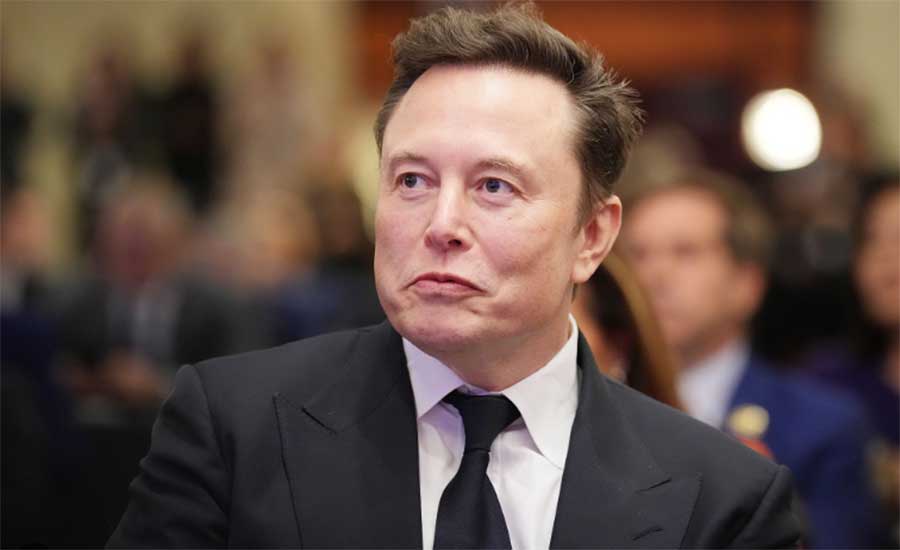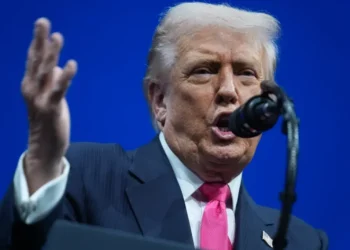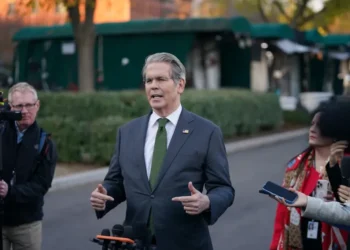Elon Musk Targets Federal Employees, Sparking Fears Among Civil Servants
When President-elect Donald Trump announced that Elon Musk and Vivek Ramaswamy would spearhead efforts to downsize the federal government, many public employees feared their jobs could be in jeopardy. Now, their concerns have deepened as Musk publicly names government workers, turning them into targets for online harassment.
Government Employees Under Fire
Recently, Musk reposted messages on his social platform, X, revealing the names and roles of individuals holding four relatively obscure climate-related government positions. These posts, viewed tens of millions of times, have led to an onslaught of negative attention and harassment for those named. At least one of the targeted employees has since deleted her social media accounts.
Although the information Musk shared is publicly accessible, the targeted individuals are low-profile civil servants whose roles don’t involve direct public engagement. Federal employees fear these actions could result in permanent personal and professional harm, including physical threats.
“This tactic sows fear among federal employees,” said Everett Kelley, president of the American Federation of Government Employees, which represents over 800,000 civilian workers. “It’s designed to intimidate and silence them.”
A Pattern of Intimidation
Musk has previously used his platform to criticize individuals, often resulting in significant personal backlash for those targeted. Mary “Missy” Cummings, a professor at George Mason University and a former senior advisor at the National Highway Traffic Safety Administration (NHTSA), experienced this firsthand. Musk criticized her publicly due to her comments on Tesla’s driver-assistance technology, leading to online harassment and even death threats. Cummings said she had to relocate temporarily due to safety concerns.
“He uses intimidation to pressure people to quit,” Cummings explained. “It’s a signal to others in government agencies: ‘You’re next.’”
The Climate-Related Jobs in Musk’s Crosshairs
Among those targeted were employees in climate-related roles at various government agencies:
- US International Development Finance Corporation (DFC): Musk reposted a message criticizing the role of a “Director of Climate Diversification,” calling such positions “fake jobs.” The DFC focuses on funding projects in low-income countries to address climate challenges. After Musk’s post, the targeted employee deactivated her social media accounts.
- Department of Energy (DOE): Musk called out the chief climate officer, whose role involves reducing barriers to clean energy adoption. Ironically, this office helped fund Tesla in its early days, awarding the company a $465 million loan in 2010.
- Department of Health and Human Services (HHS): A senior advisor on environmental justice and climate change faced criticism. The HHS focuses on mitigating pollution impacts on vulnerable communities, a role established during the Biden administration.
- Department of Housing and Urban Development (HUD): Musk mocked the salary of a climate advisor at HUD, adding laughing emojis to his post. The advisor’s work centers on addressing climate risks in housing.
Despite the backlash, the agencies involved declined to comment on individual employees or their positions.
Impact on Public Service
Federal employees say Musk’s actions discourage civil service and endanger individuals committed to public work. Some have already resigned out of fear of becoming the next target.
Experts on cyber harassment note that Musk’s tactics create a chilling effect, discouraging discussion and public accountability. However, they often hesitate to speak publicly, fearing Musk’s online influence.
Broader Debate on Bureaucracy
Ramaswamy, Musk’s collaborator in the proposed downsizing efforts, emphasized the problem is systemic, not personal. “Our opponent is the bureaucracy, not any individual,” he said, while acknowledging that most federal employees deserve respect.
Meanwhile, Musk has faced criticism for benefiting significantly from federal programs. The American Federation of Government Employees pointed out that contractors like Musk receive around $750 billion annually—far more than the $200 billion spent on the civilian federal workforce.
A Call to Action
Despite the risks, Cummings insists on speaking out. “Someone has to stand up to this,” she said. “I refuse to let him win on this point.”
As Musk continues to wield his platform against government employees, the line between public accountability and personal harassment grows ever blurrier, leaving federal workers to navigate an increasingly hostile environment.
This article was rewritten by JournosNews.com based on verified reporting from trusted sources. The content has been independently reviewed, fact-checked, and edited for accuracy, neutrality, tone, and global readability in accordance with Google News and AdSense standards.
All opinions, quotes, or statements from contributors, experts, or sourced organizations do not necessarily reflect the views of JournosNews.com. JournosNews.com maintains full editorial independence from any external funders, sponsors, or organizations.
Stay informed with JournosNews.com — your trusted source for verified global reporting and in-depth analysis. Follow us on Google News, BlueSky, and X for real-time updates.














